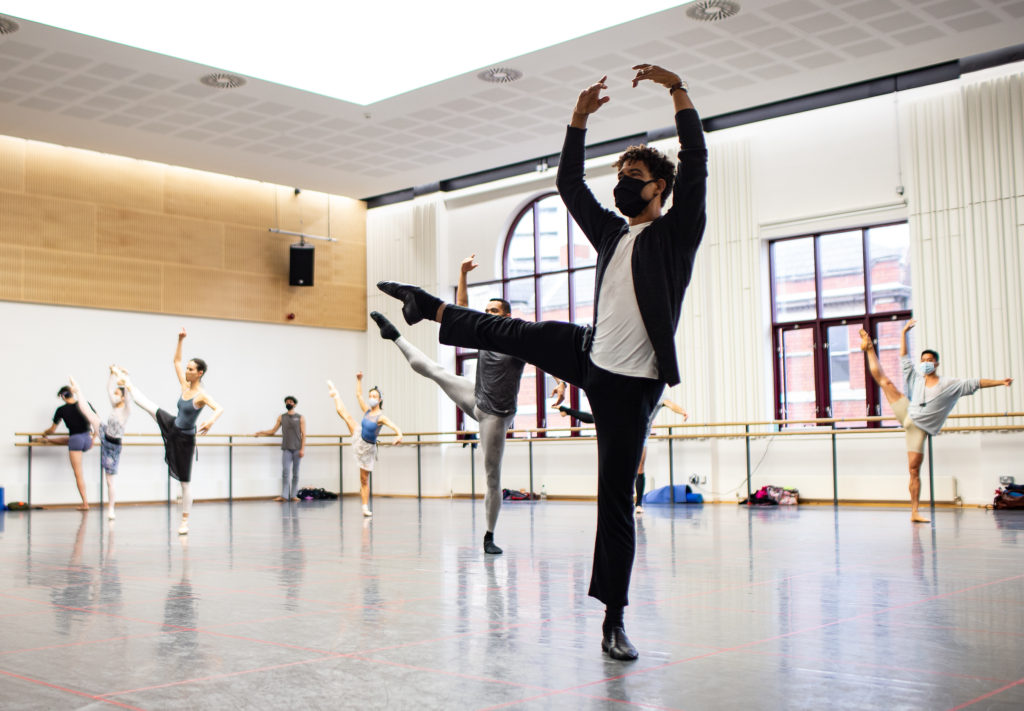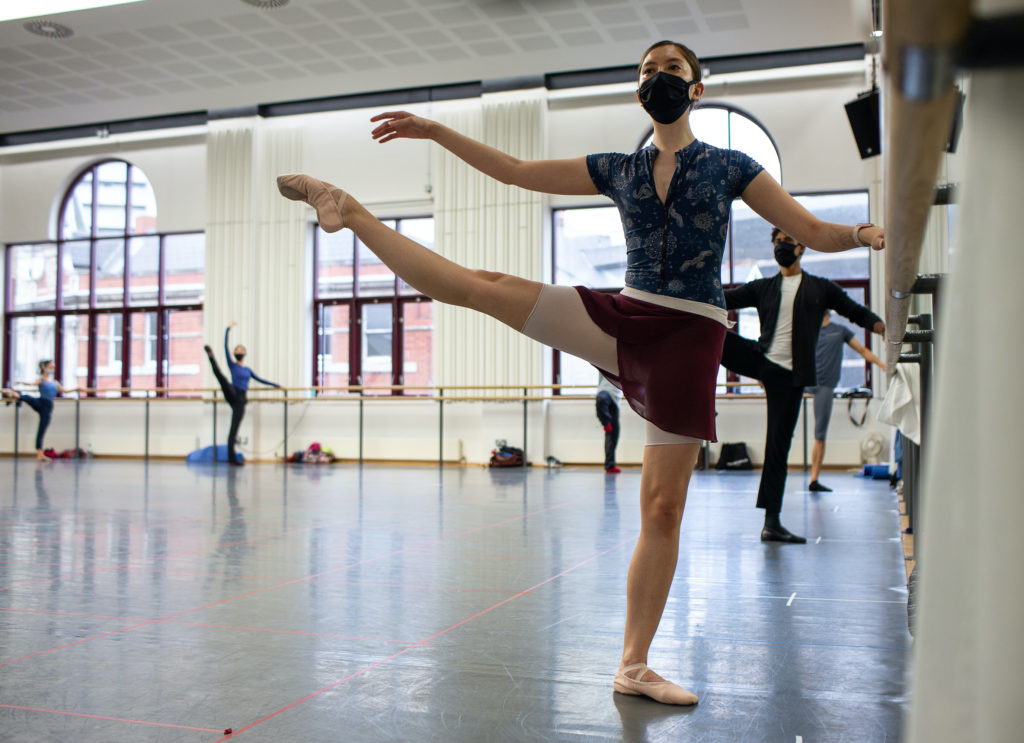Carlos Acosta: Leading Birmingham Royal Ballet through these pandemic times
- Home
- Features 2020 - 2023
- Carlos Acosta: Leading Birmingham Royal Ballet through these pandemic times

By Gerard Davis
Carlos Acosta’s rise from the slums of Havana to one of the greatest ballet dancers of his generation has been well-documented, even made into a 2019 feature film, Yuli. After a stellar career in London and around the world, he made his farewell mainstage performance as a principal dancer for the Royal Ballet in November 2015 and promptly formed his own Cuban-based contemporary company, Acosta Danza. Within two years he’d opened the Carlos Acosta Dance Academy in Havana to help underprivileged children pursue a dance career, and in January 2020 he became director of the United Kingdom’s second largest ballet company, Birmingham Royal Ballet (BRB).
“It gave me an opportunity to go back to my roots as a classical dancer,” Acosta says of the BRB appointment. “I missed the classical life and it meant I could start giving back some of the knowledge I’d acquired over the years.” Based in Birmingham, Britain’s second largest city, BRB employs over 50 dancers, and tours both the UK and abroad. It had been under the leadership of David Bintley for 24 years when Acosta took the reins, eager to “contribute to the company’s vast tradition and also bring it more into the times we’re living in.”

Two months after starting his new position, however, the world was plunged into chaos with the onset of the coronavirus pandemic and Acosta found himself having to tell dancers, staff and audiences to stay at home for the foreseeable future. “When I joined in January,” he says, “I thought I had a good plan for my first season but with the appearance of COVID-19, that all had to change. Because BRB’s such a big organization, I didn’t know the staff or dancers very well and all of a sudden I was stuck at home in rural Somerset having Zoom meetings and struggling with a deficient internet connection. But I’m always positive, I always try to find solutions, and what I stressed straight away was the necessity for us to survive — not just the company but also our art. We had to find new ways of connecting to our audience.”
Within weeks Acosta had BRB principal dancer Céline Gittens film herself in her front room for a BBC broadcast of a version of Fokine’s The Swan; in light of the more positive ending Acosta gave the solo, he used the original title and not the more usual The Dying Swan. Classic company performances were also made available online.

In late August, Acosta announced that Birmingham Royal Ballet would be performing live indoor shows in Birmingham and London in October in front of a socially distanced audience, the first major UK dance company to make such a call. The ambitious mixed bill includes work new to the company and also a world premiere, Lazuli Sky, by Will Tuckett. “Will’s piece will be a response to this history-making moment in time,” says Acosta. “He’s the right person to do this new commission; he’s always trying to find ways to innovate and I know the creation of it will be enjoyable for the dancers. I don’t think anyone wants a traumatic creative process right now.”
With no realistic option of meeting Acosta face-to-face for our interview due to strict UK social distancing rules, we talk instead over the phone, which leads me to ask him how the dancers are able to rehearse. “They’re all wearing masks at the moment,” he says, “which is a big problem because they can’t breathe very well.”
At this point in our conversation, someone interrupts to inform Acosta that coronavirus cases in Birmingham have started to rise. This is of particular concern because the company has an outdoor performance planned for the following Monday, August 24, and the UK government has been quick to reimpose tough lockdown restrictions on towns and cities with a surge in cases. “Obviously, everything’s been calculated so that we can deliver a performance safely, but whether we’re allowed to, well, that’s another matter,” Acosta says before adding in typically positive fashion, “but at least we’re ready to go.” (In the event, Acosta was right to be concerned; following updated Birmingham City Council advice, the performance had to be postponed.)
Remarkably in a country where redundancies and recruitment freezes have become the norm, Acosta recently announced the arrival of six new company dancers. “All directors want to leave their mark,” he says, “and I’m looking forward to launching new faces, the new stars of the future. Along with new work, fresh young dancers guarantee the preservation of the institution.” He’s aware of his fiscal responsibilities, however. “Like all companies, we’ll be studying the financial situation over the course of next season to see what we can afford for the future.”

Three of the newcomers come directly from the Royal Ballet School (whose board of governors Acosta joined in July). In light of the fact that BRB only became independent of The Royal Ballet in 1997, does this mean closer ties going forward between the two companies? “The Royal Ballet is three institutions: the Royal Ballet, BRB and the Royal Ballet School,” says Acosta, “but over recent years they’ve become a bit separated. I’ve always worked well with Kevin O’Hare and Christopher Powney [artistic directors of the Royal Ballet and the Royal Ballet School respectively] and I think the climate is there for us to work together and make the brand even stronger.”
Like many people, Acosta admits he found life under lockdown difficult, especially the lack of socializing, but equally he found himself motivated by the growing phenomenon of the Black Lives Matter movement. Birmingham is one of the UK’s most multicultural cities (almost half of its one million+ inhabitants come from ethnic minority backgrounds) and he’s pleased to point out that 33 percent of his staff, and eight out of his ten principal dancers, identify as non-white. “Now they’ve got me,” he says, “a black director, and I’m going to address things even further.”
His vision goes beyond the confines of the company’s personnel, however. “I want to challenge audiences from different ethnic compositions to come and follow this wonderful art form by bringing them rep that’s a lot more inclusive. Audiences have a responsibility to support the artistic treasures that are in the city; it would be great if, instead of going to the movies one evening, they could give ballet a chance.”
As a final question, I ask Acosta how he thinks he’ll be feeling — lockdown restrictions permitting — when the curtain finally rises on the October performances after a seven-month absence. “It’ll be like a return home,” he says immediately. “There’s been so much uncertainty, anguish and pain for everyone but finally we’ll be back where we belong — onstage with dancers, designs, costumes and live music. I really hope we can bring some joy back to the sector and to our audience.”

